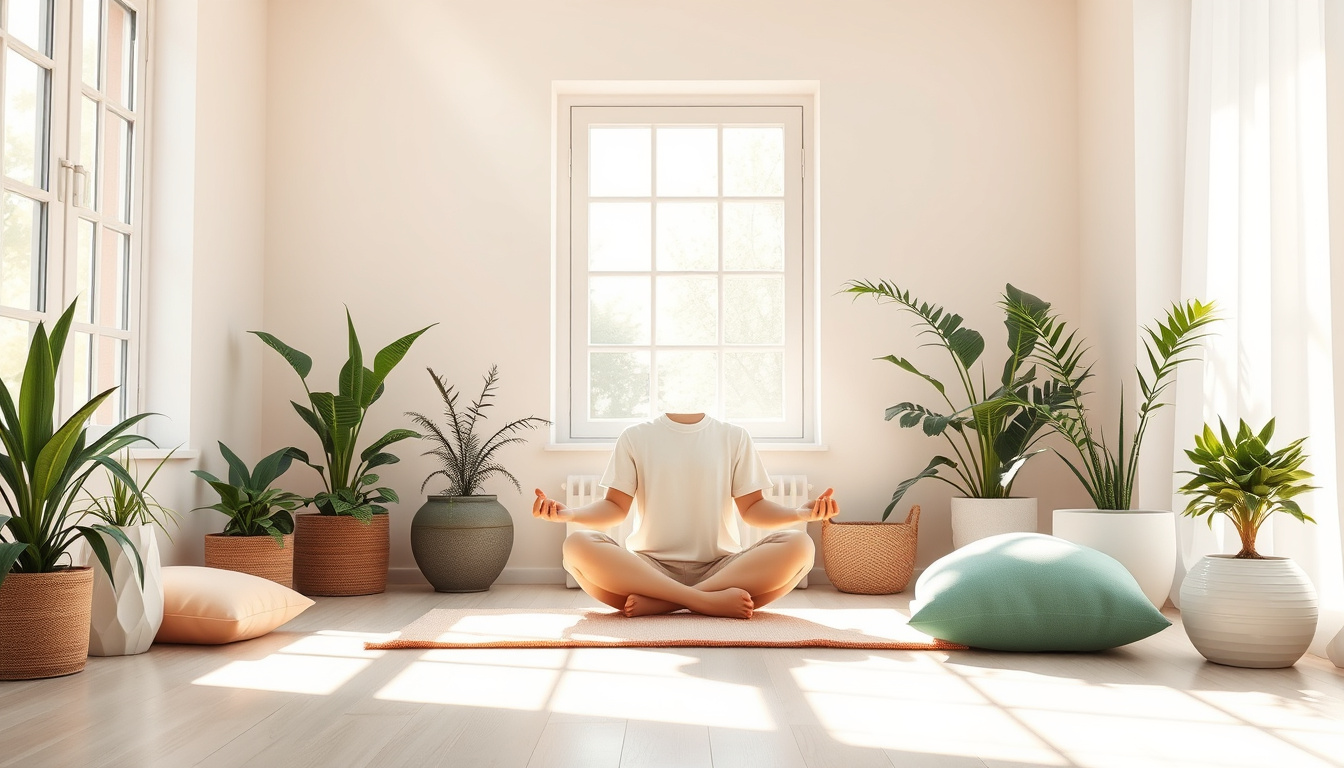In today’s fast-paced world, where constant notifications and endless to-do lists can feel overwhelming, finding a moment of stillness and clarity is more valuable than ever
In today’s fast-paced world, finding moments of tranquility can seem impossible. However, learning meditation can transform your daily life, bringing about clarity, relaxation, and inner peace. Whether you are looking to reduce stress, enhance concentration, or improve your emotional well-being, mastering the art of meditation is a powerful tool. In this ultimate guide, we will explore the fundamentals of meditation, guide you in choosing the right style for your lifestyle, outline essential steps to kickstart your practice, address common challenges, and show you how to seamlessly integrate meditation into your daily routine. Get ready to embark on a journey towards inner peace!

Meditation is an ancient practice that involves training the mind to achieve a state of heightened awareness and focus, promoting mental clarity and emotional stability. For those looking to learn meditation, it’s essential to recognize that it encompasses various techniques and styles, ranging from mindfulness and transcendental meditation to loving-kindness and guided practices. The profound benefits of meditation include reduced stress and anxiety, improved concentration, and a greater sense of overall well-being. Engaging in regular meditation can enhance emotional health, foster self-awareness, and even help individuals cultivate a deeper connection with themselves. As you embark on your journey to learn meditation, you'll discover not only relaxation and peace but also the tools to navigate life's challenges with a calm and centered approach.
When you decide to learn meditation, the variety of styles available can be overwhelming. Each meditation technique offers its own unique benefits, making it crucial to choose one that resonates with you personally. Begin by exploring popular methods such as mindfulness meditation, which encourages present-moment awareness, or loving-kindness meditation, which focuses on cultivating compassion. If you are looking for a more structured approach, consider guided meditations that lead you through specific visualizations or phrases. Alternatively, transcendental meditation offers a mantra-based practice that can deepen your focus. As you embark on your journey to learn meditation, reflect on your specific goals—whether it's stress reduction, emotional healing, or increased concentration—to help you identify the style that aligns best with your personal growth and lifestyle.
'Meditation is not a means to an end. It is both the means and the end.' - Jiddu Krishnamurti

Starting a meditation practice can seem daunting, but with a few simple steps, anyone can learn meditation and reap its incredible benefits. First, find a quiet space where you can sit comfortably without distractions. Whether it's a dedicated room or a peaceful corner in your home, having a spot that fosters tranquility is essential. Next, set aside a specific time each day to practice. Consistency is key, so start with just five to ten minutes daily and gradually increase as you become more comfortable. Consider using guided meditations or apps designed for beginners, which can offer structure and support as you learn meditation techniques. Focus on your breath, allowing your mind to settle; if thoughts wander, gently bring your attention back to your breathing. Lastly, remain patient with yourself. Meditation is a skill that improves over time, so embrace the journey and enjoy the peace it brings to your life.
Meditation is a powerful practice that can lead to improved mental clarity and emotional stability, yet many beginners face common challenges when they first attempt to learn meditation. One of the most frequent obstacles is dealing with a wandering mind. It’s natural for thoughts to arise, but the key to overcoming this challenge is to gently guide your focus back to your breath or mantra each time you become distracted. Another common hurdle is finding the right environment; distractions in your surroundings can hinder your practice. To combat this, set aside a specific space dedicated to meditation, ensuring it is quiet and free from interruptions. Additionally, beginners often grapple with setting unrealistic expectations about their practice, leading to frustration. It’s essential to remember that meditation is a journey, not a destination. Start with short sessions and gradually increase the duration as you become more comfortable. Lastly, some may experience discomfort, both physical and mental, during meditation. Creating a supportive posture and being patient with yourself can help alleviate some of this unease. By acknowledging these challenges and implementing strategies to overcome them, anyone can learn meditation and reap its immense benefits.

Integrating meditation into daily life can transform your mental well-being, leading you to experience lasting peace amidst life’s chaos. To effectively learn meditation, start by carving out a few minutes each day—early morning or before bed often works best. Choose a quiet space, sit comfortably, and focus on your breath. Guided meditations are great for beginners and can be easily accessed through various apps and online platforms. As you practice, you’ll learn meditation techniques that allow you to become more aware of your thoughts and feelings, fostering a greater sense of calm and mindfulness. The key is consistency; by dedicating time each day to meditate, you’ll develop a deeper connection with yourself and cultivate an inner sanctuary that can help you navigate daily challenges with ease.
Unlock Calm with Guided | Download now and get 3 free meditations
The Only Meditation App That Evolves with You.
Guided Uses AI to Adapt to Your Mood, Goals & Preferences.
